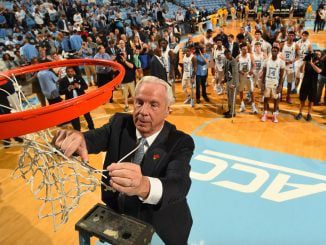Detractors ignore the explicit role of the University’s governing board.
Few entities at Carolina have received greater public and media scrutiny than the Board of Trustees. UNC has undergone significant changes since the COVID pandemic, many of which were catalyzed by the board. Thus, examining its role — both its statutory mandate and its recent actions — adds valuable context to the often-heated discourse surrounding the university’s political and academic trajectory.
The university was chartered by the state legislature in 1789 to fulfill the North Carolina Constitution’s mandate that it is the “duty of the State to guard and maintain” the people’s “right to the privilege of education.” The Board of Trustees, tasked by the legislature with starting the University, still acts as the institution’s guide, tethered to the people the University serves by their elected representatives.
State law grants UNC’s Board of Trustees the power to “promote the sound development of the institution…aiding it to perform at a high level of excellence in every area of endeavor.” The Board serves as advisor to the chancellor and Board of Governors on “the management and development of the institution.” The chancellor, in turn, is “responsible for carrying out policies of the Board of Governors and of the board of trustees.”
As an advisory body, the board must identify areas of concern and opportunity for the university and recommend solutions. Among today’s challenges are free speech, academic freedom and viewpoint diversity. According to James G. Martin Center President Jenna Robinson, the board has been “proactive and effective” in this area by adopting the Chicago Statement on Free Expression, committing to institutional neutrality, and supporting civil discourse on campus.
Others at Carolina, however, have criticized the trustees’ actions, arguing that they have reached beyond their rightful powers. The Coalition for Carolina Foundation and UNC faculty council, for example, criticized the trustees’ call for the accelerated development of the School of Civic Life and Leadership (SCiLL).
Mimi Chapman, a co-founder of the Coalition and former faculty chair, told the Chronicle of Higher Education that the trustees were overstepping by “trying to insert themselves into the running of the campus and the development of the curriculum.” While she cites deviations from the board’s past engagement, she does not point to any statutory overreach. Neither Chapman nor current faculty chair Beth Moracco responded to my requests for comment.
Mark McNeilly, a professor at UNC, argues that the trustees have positively impacted the school by “adopting institutional neutrality, supporting the formation of SCiLL, and taking other actions.”
McNeilly notes the board’s role in representing North Carolina’s taxpayers, stating that the trustees “cannot be a rubber stamp in the shared governance process but need to engage with the university in a dialogue to bring in that outside voice.”
In response to detractors such as those from the faculty council, McNeilly states that the board’s greater engagement in its advisory role in recent years “is a change from the past, so it’s not surprising that some faculty are unhappy.” Furthermore, Chapman’s insinuation that the school was created by board fiat is contradicted by the fact that plans for the new school preceded the trustees’ involvement.
The trustees’ SCiLL resolution followed conversations between faculty and administrators regarding the expansion of the Program for Public Discourse. Former Chancellor Kevin Guskiewicz stated that the expansion followed “planning, conversations, discussions with faculty leaders, and site visits dating back to February 2018.” However, regardless of which campus constituency first conceived of SCiLL, the trustees are within their statutory authority to suggest how campus leaders might address pressing issues, such as the lack of open discourse on campus.
UNC’s trustees are right to be concerned. Recent data from FIRE shows that 58% of UNC students feel somewhat or very uncomfortable expressing their views on controversial topics in class. At the same time, public confidence in higher education has dropped precipitously.
Statistics like this paint a dark picture for an institution whose mission requires the open dissemination of knowledge and the free exchange of ideas. As the voice of North Carolina’s citizens at UNC, the Board of Trustees should advocate for programs, schools or other means of remedying threats to the university’s mission — both to regain public trust and to promote the “sound development of the institution.” Without such oversight, the people’s university could spiral out of control in the hands of a faculty increasingly aligned in viewpoint.
After the trustees recommended the acceleration of SCiLL, it became the role of the administration and faculty to determine whether and how to construct such a program. In the time since, the new school has garnered national attention for offering courses pertinent to current issues and assembling a talented faculty focused on open discourse and the pursuit of truth. In this regard, the new free-speech-focused school epitomizes shared governance.
Harrington Shaw is the managing director of the UNC Alumni Free Speech Alliance and an economics and philosophy graduate of UNC Chapel Hill.



